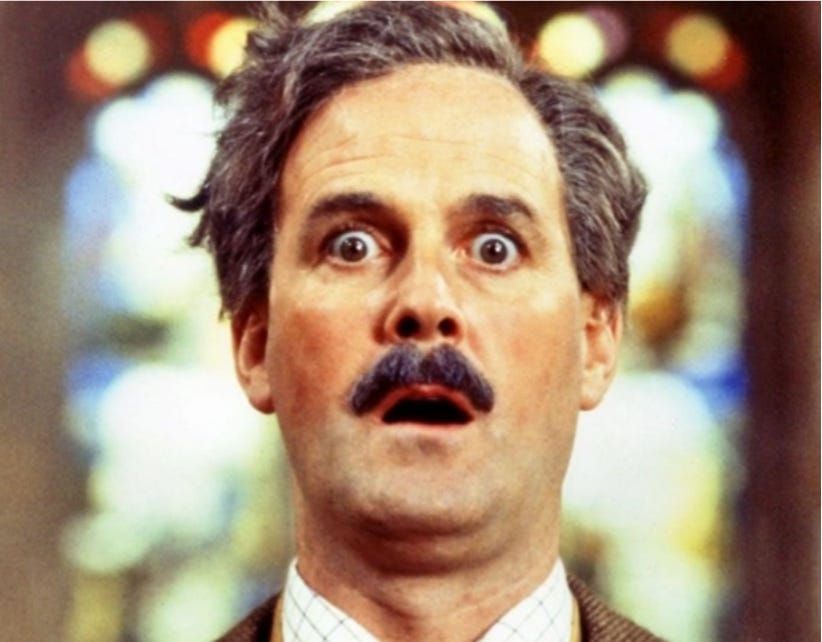What John Cleese taught me about creativity
To be truly creative, you have to risk being ridiculous
John Cleese is a comedian, actor, writer and producer. His many achievements include being a founding member of the iconic comedy troupe Monty Python and co-writing and staring in Fawlty Towers. His book, Creativity: A short and cheerful guide, provides a glimpse into the mind of this creative genius.
Here’s one story John shares. If I wrote a sketch by myself in the evening, I'd often get stuck, and would sit there at my little desk, cudgeling my brains. Eventually I'd give up and go to bed. In the morning I’d wake up and make myself a cup of coffee. Then I'd drift over to the desk. Almost immediately, the solution to the problem I'd been wrestling with the previous evening became quite obvious to me! So obvious that I couldn't really understand why I hadn't spotted it the night before. But I hadn't.
John Cleese said, Learning from something or someone you admire is not stealing. So, I have permission to share a few of his ideas.
Creativity is a skill
Creativity is not a talent. It is a way of operating. - John Cleese
Creativity isn’t an innate talent but a skill that can be developed with practice and the right mindset. It’s accessible to everyone, not just creative types.
When young, I had no idea I could be creative. Maths was my thing. Now, I love building tools for colleagues, designing apps and writing. Creativity is a skill I’ve learned.
Open and closed modes
The open mode is a relaxed, expansive and playful state of mind that is essential for creative problem solving. The closed mode is more linear, logical and focused. This is good for execution but bad for generating ideas. - John Cleese
For creativity, it important to make time and space to enter the open mode.
Daily walks along my local canal and river provide space for me to come up with ideas.
Embrace playfulness
The most creative people have this childlike facility to play. - John Cleese
Playfulness is a key ingredient in fostering creativity. Approaching problems with a sense of humour and curiosity often leads to innovative solutions.
I had an idea to repurpose the dried-out body of a frog I found in my garden. I placed the frog in a cup, peering over the edge, on a colleague’s desk. My colleague became aware of something staring at him. Naturally, he assumed it was plastic. Then he realised it wasn’t. Play was a big part of our office culture.
Accept uncertainty
Nothing will stop you from being creative so effectively as the fear of making a mistake. - John Cleese
Creativity involves embracing uncertainty and resisting the urge to jump to conclusions. Staying with problems longer can lead to more original ideas. Risk and failure are part of the creative process.
I try to accept that there is little I directly control in life. I can control my attitude and the actions I take, but not whether this leads to a successful outcome. However, as the common refrain has it, The harder I work, the luckier I get.
Subconscious mind
We don't know where we get our ideas from. What we do know is that we do not get them from our laptops. - John Cleese
Often, the best ideas emerge when the conscious mind takes a break. Sleep on problems or take a step back to let the subconscious work on solutions.
When my older brother was studying for A Levels, he played recordings of textbooks while he was asleep, on the basis it would sink in over night. He went on to get a degree, undertake a doctorate then became a professor. So, maybe, it worked.
Other resources
Creativity in Management talk by John Cleese
Three Ways to Unlock Creativity post by Phil Martin
Creative Momentum post by Phil Martin
I’ll let John Cleese wrap it up with this suggestion, The key thing is to start, even if it feels as though you’re forcing yourself through an emotional roadblock.
Have fun.
Phil…




